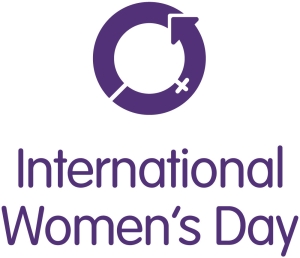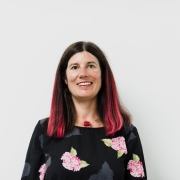Deeper than ESG – finding our soul
 On this International Women’s Day let’s think differently and do the world a favour by acting differently. It’s not about more of the same with a ‘female’ badge attached to it.
On this International Women’s Day let’s think differently and do the world a favour by acting differently. It’s not about more of the same with a ‘female’ badge attached to it.
Women often feel that they don’t fit in the male-led business world, because they want to make a difference, not just make lots of money and be judged on how much their business turns over (this applies to many men that don’t fit the standard mould too!)
Growth vs degrowth or scaling up vs scaling out – we are not anti-growth, we are instead trying to make the world question the old assumptions and value not just financial outcomes that lead to certain types of behaviours, e.g. excessive personal financial profiteering of those in positions of power, taking priority over social and environmental considerations such as pollution, social inequality and exploitation.
A recent article The struggle for the soul of the B Corp movement by Anjli Raval of the Financial Times has ignited a debate on social media about how we truly know and identify businesses that are doing the best by people and planet, brought on by the B Corp certification being awarded controversially to the likes of Nespresso and Brewdog (now removed).
B Corp: is the gold standard for ESG flawed? https://t.co/wsNJIUa9Lr
— FT for Schools (@ft4s) February 19, 2023
Subsequently I have been doing a lot of thinking around this issue. How do we truly know that a business is values based? There are so many different methodologies out there from looking at the outputs and outcomes (social value, impact and the rise of ESG reporting), to proving the DNA/governance of the business and its drivers (purpose driven and/or asset locked), to name a few.
There is no single answer, as we know that if an organisation is determined to ‘greenwash’, those in control will probably find a way to do it. However, there are ways in which we can reduce the likelihood and challenge the fundamentals of business – i.e. who owns it, who benefits (profits) from it, who is on the Board and the main mission all help.
Our Social Enterprise Mark accreditation independently proves that individual #shareholders are not in the driving seat, due to what’s termed an asset lock, which limits profits from dividends and on sale/closure. It also requires that social impact is measured and reported. Although B Corp certification does require a purpose driven mission statement, there is no restriction on shareholders profits and the pick and choose approach via the points based system can potentially let businesses off the hook – i.e. disguise the #antisocial actions. Our Social Enterprise Gold Mark goes even further, by further examining stakeholder involvement, social impact and business ethics – points are used but there is a minimum number of points required.
In order to make a fundamental shift in this logjam we need to be much more revolutionary and precise in what we mean by the term business growth. We are truly stuck on one business model that provides a very limited set of benefits… Our traditional methods of accounting and valuing a business all point in this direction and investors perpetuate this. They are all holding us back and are not fit for purpose!
The criticism of this limitation of profits approach to business ethics is mainly due to the reduction in ability to attract growth investment (i.e. equity investors that take a stake in future profits and sale of the company) especially at start-up and growth phase. Social impact investment tends to be this type of funding – it requires very high rates of financial return as well as a social return.
Many people don’t realise that social enterprises which look for additional finance to grow are therefore largely reliant on debt finance (often known as social investment, with expensive interest rates) or grants (tend to be linked to specific outputs and hard to come by and need to be replaced).
In order to make a fundamental shift in this logjam we need to be much more revolutionary and precise in what we mean by the term business growth. We are truly stuck on one business model that provides a very limited set of benefits – i.e. financial return with financial products that respond in similar limited way. Our traditional methods of accounting and valuing a business all point in this direction and investors perpetuate this. They are all holding us back and are not fit for purpose!
There is a growing movement that recognises the challenge, with solutions that help redress the imbalance of financial interests as opposed to sustainability, yet to penetrate mainstream education of economists, business schools and accountancy let alone the professions and professional bodies themselves.
 But there are signs that this is changing. The Rethinking Economics network is doing some excellent work in this education space and there are forward looking professionals leading the charge for change.
But there are signs that this is changing. The Rethinking Economics network is doing some excellent work in this education space and there are forward looking professionals leading the charge for change.
The frustration is the time and the lack of progressive thinking from mainstream economists, politicians and financial professionals. I hope that over the next year we see an acceleration of a shift in thinking and that I am not saying the same all over again on IWD2024!






Leave a Reply
Want to join the discussion?Feel free to contribute!